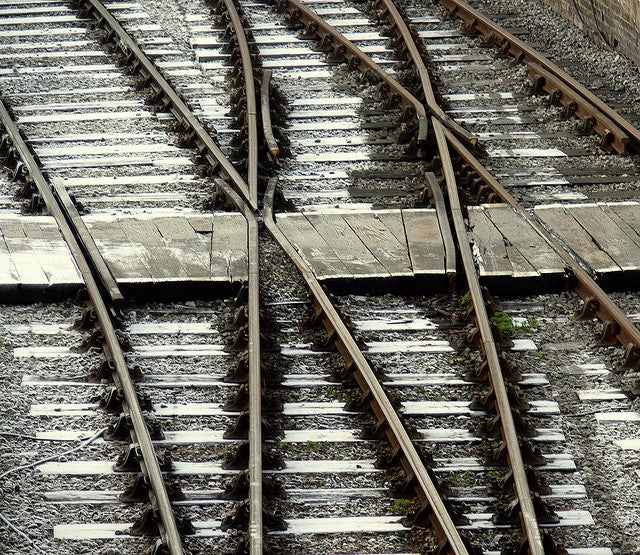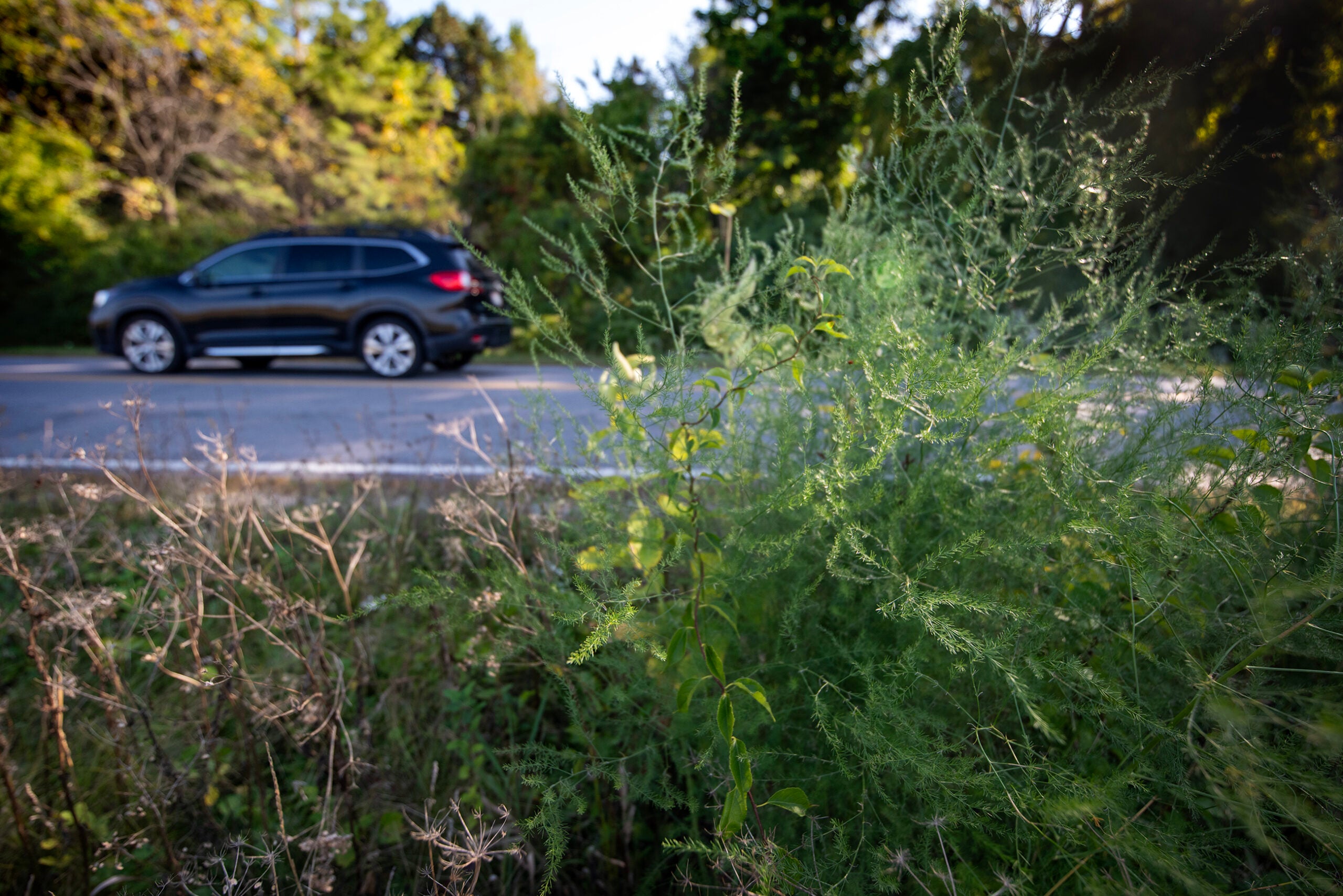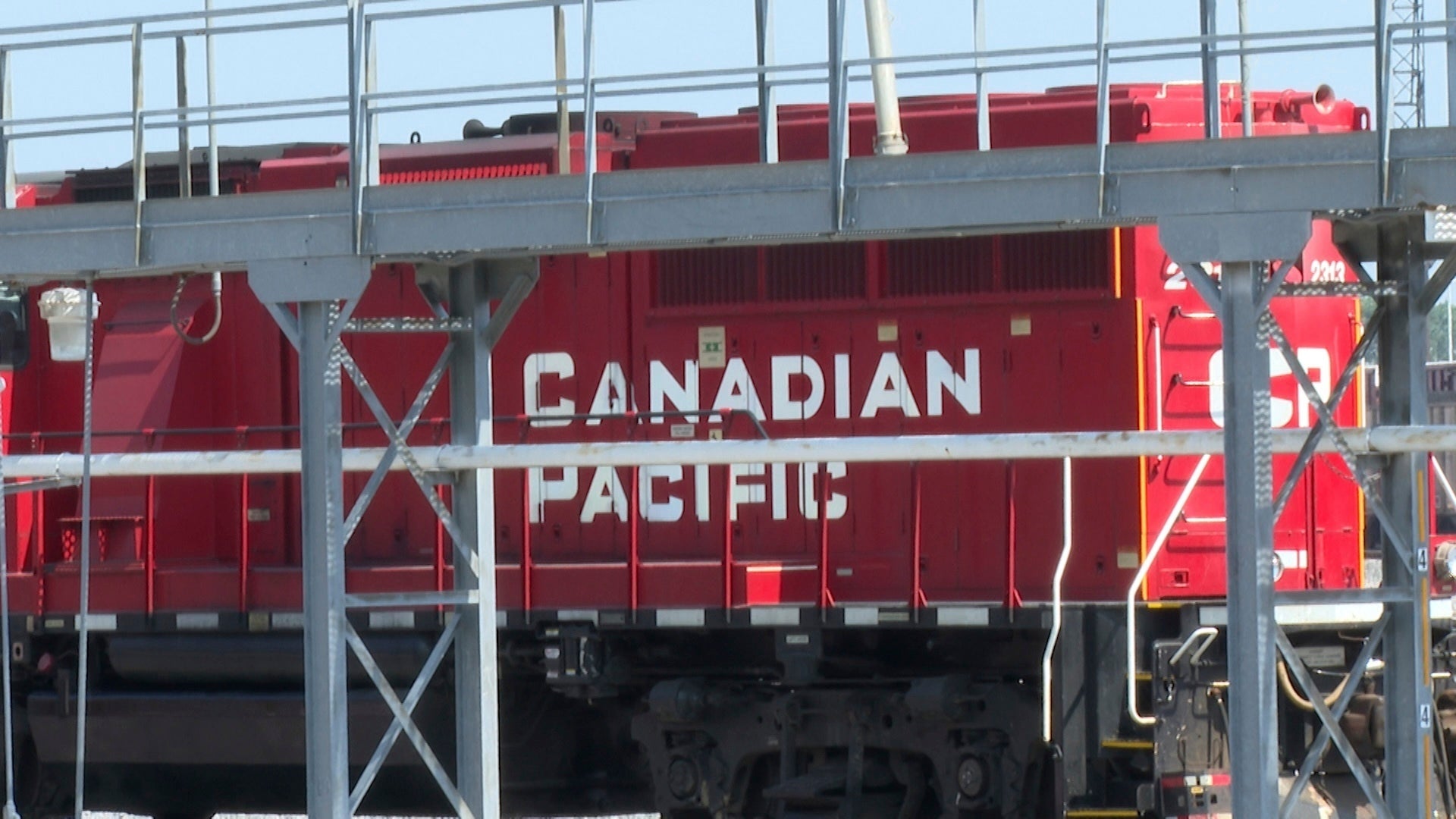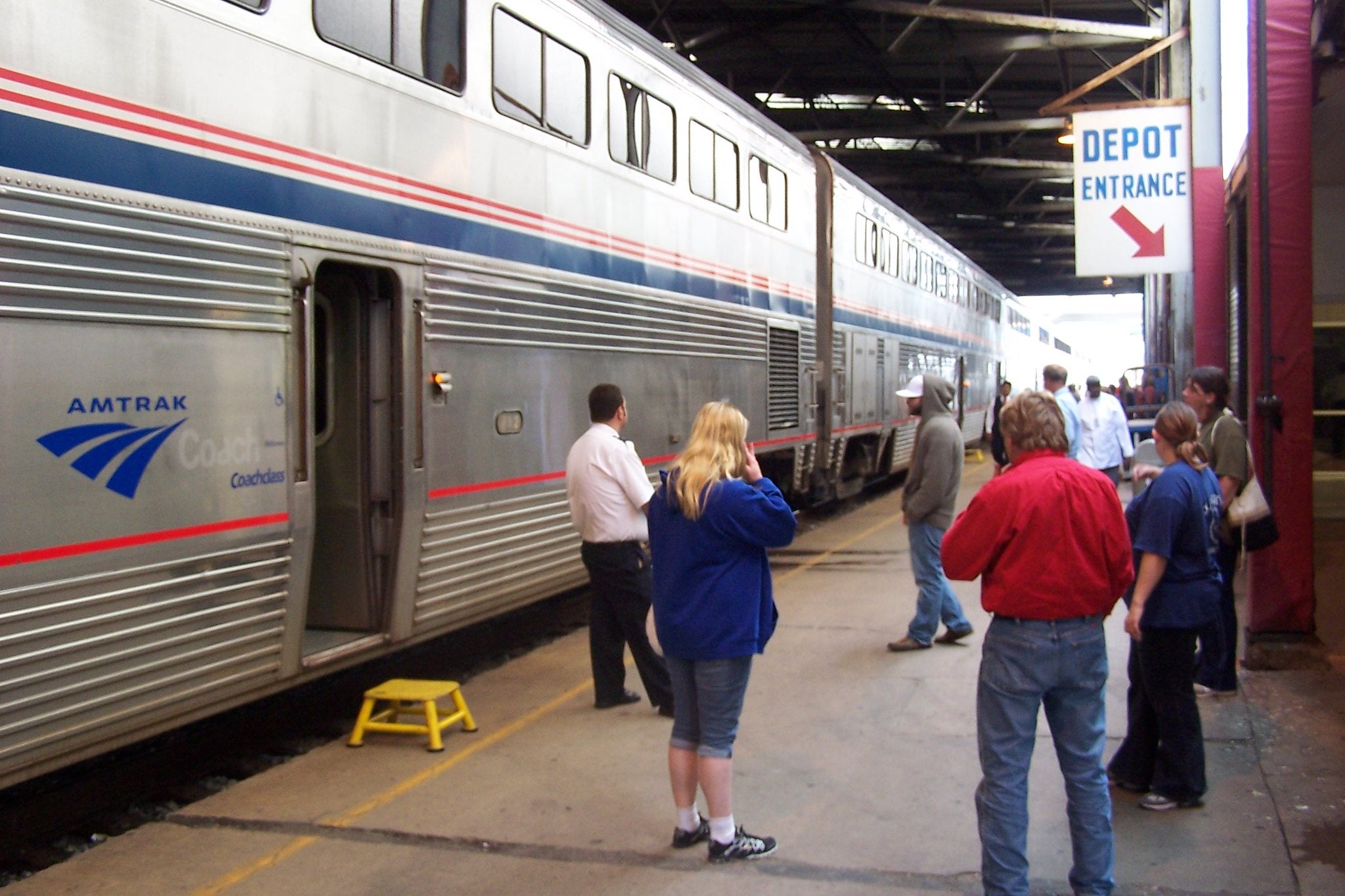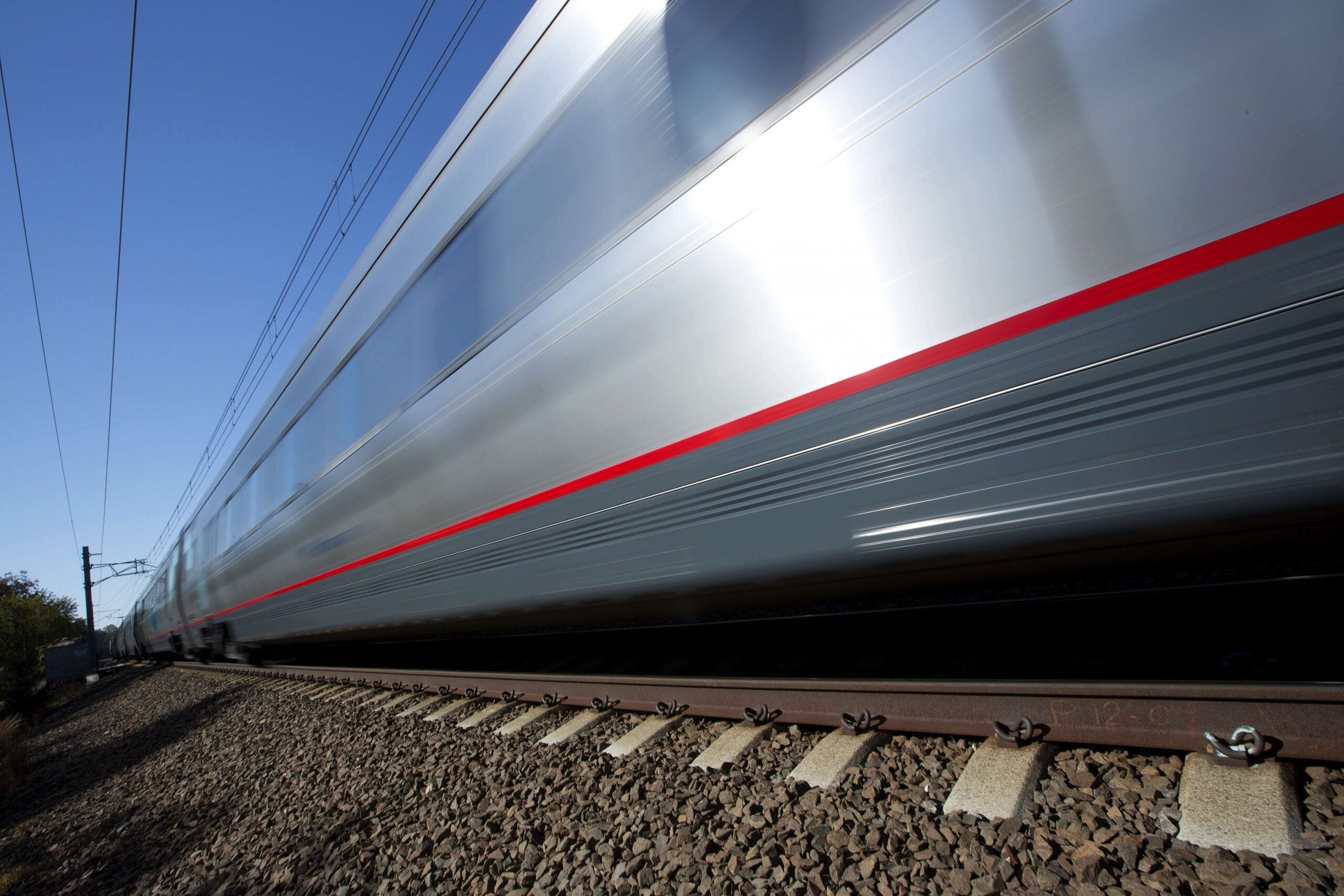Concern about trains transporting oil in the Upper Midwest is prompting a pair of events this week, with U.S. Sen. Tammy Baldwin expected to outline her concerns at a La Crosse news conference on Tuesday morning while others plan a protest outside a rail shippers meeting in Chicago on Wednesday.
Fear of the trains exploding is something that unites critics in Wisconsin and Illinois.
The trains typically carry crude oil from North Dakota or Canada on the way to refineries to the south and east. Explosions of the tanker cars have occurred in several locations — one as close to Wisconsin as Galena, Illinois. Many of the trains that head south through Wisconsin end up winding their way through Chicago, the rail hub of the Midwest.
News with a little more humanity
WPR’s “Wisconsin Today” newsletter keeps you connected to the state you love without feeling overwhelmed. No paywall. No agenda. No corporate filter.
A BNSF train, pulling dozens of black tanker cars, can be seen slowly running through Chicago’s near west side heading slightly downhill toward a curve. The day before, the train might have been in western Wisconsin.
While for industry, the train’s noise might signify jobs and fuel for motorists, Dr. Lora Chamberlain said she hears danger.
“What I hear when I hear these trains is very serious braking. They’re going very slow right now, but it’s very difficult to brake these trains, and that’s why when you see derailments and walls of fire, it’s usually around turns,” she said.
Chamberlain is a family physician and with the group Frack Free Illinois. She said they’ll be protesting oil trains on Wednesday in Chicago at a convention of railroad executives.
Tony Phillips also wants to get the freight carriers’ attention. He said when the trains go by his trackside home, he takes note.
“That’s when my house shudders. I can feel it in the ground,” he said. “There’s a slosh effect in the cars and I can feel this oscillation in the ground.”

Lora Chamberlain of the group Frack Free Illinois. Chuck Quirmbach/WPR
With the number of oil trains dramatically on the increase over the last few years, people living near train tracks from Chicago to Superior have been speaking up.
But at a hearing last month in Milwaukee, the railroad industry played down any danger. Herb Jones, of Canadian Pacific Railway, said that over time, the safety record of railroads is getting better.
“Since 1980, the accident rates for railroads are down literally 80 percent,” he said. “Probably the biggest reason is the investment the railroads are making in the infrastructure. (About) 99.997 percent of hazardous material reach their destination without any kind of release of any kind.”
Officials with the Obama administration said they want to drive down the risk even more.
“The accidents involving crude and ethanol that have occurred, though, have shown us that 99.99 percent isn’t enough. We have to strive for perfection,” said U.S. Department of Transportation Secretary Anthony Fox.
This month, Fox announced final federal rail tank car rules for the transportation of flammable liquids. He said it’s a comprehensive approach that calls for enhanced braking systems, train speed limits and strengthening of rail cars.
However, Baldwin said that some of the requirements won’t be in place for months or years.
“And meanwhile, Wisconsin is one of the most-traveled states in terms of crude oil being transported by rail,” she said. “And so, we have communities and citizens quite anxious about this, and I agree with all of them that we need tougher action right now.”
The senator said one thing that has to happen quickly is for oil companies to reduce the volatility of the crude, especially that extracted from the Bakken Fields of North Dakota, before the oil trains roll toward the Midwest.
The senator’s recommendation is part of a bill she’s co-sponsored, the Crude-By-Rail Safety Act. Baldwin is promoting the measure at news conferences this week.
Wisconsin Public Radio, © Copyright 2026, Board of Regents of the University of Wisconsin System and Wisconsin Educational Communications Board.

